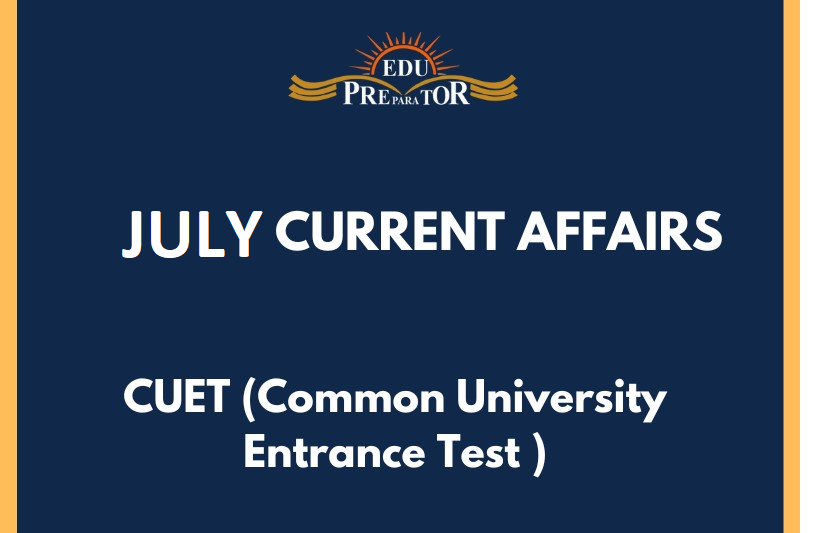
Meeting and Submits
The Shanghai Cooperation Organisation (SCO) Summit: A Panorama of Global Cooperation and Security
Introduction to the Shanghai Cooperation Organisation (SCO)
- The Shanghai Cooperation Organisation (SCO) is a leading political, economic, and defence organisation formed by China and Russia in 2001.
- Characterised as Eurasian, it encompasses around 80% of Eurasian geography and looks over 40% of the world population.
- Initiating as the Shanghai Five in 1996 joined by Kazakhstan, Kyrgyzstan, and Russia, it saw expansion in 2001 with the inclusion of Uzbekistan and further growth with India's and Iran's accession in 2017 and 2023, respectively.
- It is noted for being the world's largest regional organisation by geographical scope and population.
The Latest SCO Summit and Its Relevance
- The forthcoming SCO summit is scheduled to happen on July 3-4 in Astana, the capital of Kazakhstan.
- This year, the Indian delegation will be led by External Affairs Minister S Jaishankar, as PM Narendra Modi won't be attending.
- India previously held the presidency of the SCO and hosted the virtual summit in July 2023, post which Kazakhstan assumed the presidency.
Core Aims and Objectives of the SCO
- The key goals of the SCO range over a wide array of areas including maintenance of mutual trust, fostering multifaceted cooperation, combating terrorism, facilitating economic growth, and promoting human rights.
- It also extends to facilitating regional integration into the world economy, conflict resolution, and confronting issues of the 21st century together.
The SCO’s Organisational Structure and Decision-Making Procedure
- The SCO operates from its Secretariat in Beijing and its headquarters in Tashkent, Uzbekistan.
- Its principal decision-making body is the Heads of State Council (HSC) that hosts annual meetings.
- Additionally, the SCO houses a Regional Anti Terrorist Structure (RATS).
- Decisions within the organisation are made on a consensus basis where an agreement is considered adopted if no objections are raised. In matters relating to membership suspension or expulsion, a "consensus minus one" rule applies, deducting the vote of the concerned member state.
SCO's Contribution to World Affairs
- With its combined GDP amounting to approximately 20% of the global GDP in 2021, the SCO has made a significant impact on the world economy.
- Its prime focus on regional cooperation across multiple sectors including politics, defence, education, energy, and finance has propelled social and cultural development across the member states.
- Through its combined efforts in maintaining peace, fighting terrorism and crime, and promoting human rights, the SCO has established a distinctive role in the world's political-economic scenario.
In conclusion, the SCO serves as an instrumental organisation in fostering cooperative relations among member states, ensuring security, and contributing to socio-economic growth at the regional level with implications on a global scale.
Global INDIAai Summit and the Future of Artificial Intelligence
Overview of the Global INDIAai Summit and its Relevance
The Global INDIAai Summit, a significant gathering of AI experts, policymakers, and enthusiasts, recently concluded in Bharat Mandapam, New Delhi. It served as a platform for exploring the future of Artificial Intelligence, both globally and within India.
Meanwhile, the International Monetary Fund introduced a progressive measure known as the Artificial Intelligence Preparedness Index (AIPI) Dashboard, contributing to the global discourse on AI readiness.
Key Outcomes from the Global INDIAai Summit
- Setting Global AI Discourse: India plays a crucial role in shaping the global AI landscape by emphasising equal accessibility to AI technology. This approach aims to bridge the socio-economic gap and fulfil India's domestic requirements while aspiring for global AI leadership.
- Focus on INDIAai Mission: The summit focused on India's dedication to constructing a comprehensive AI ecosystem through the INDIAai Mission, covering various elements such as compute capacity, application development, safe AI practices, and more.
- Building Global Partnerships: The summit paved the way for strengthening international partnerships like the Collaborative AI on Global Partnership (CAIGP) and Global Partnership on Artificial Intelligence (GPAI), intending to overcome the global AI divide.
Understanding the Artificial Intelligence Preparedness Index (AIPI)
AIPI is a tool to measure a country's readiness for AI implementation, based on factors such as digital infrastructure, innovation, workforce skill levels, labour policies, and regulatory systems. Countries are classified into categories: Advanced Economy (AE), Emerging Market Economy (EM), and Low-Income Country (LIC).
India, although strong among emerging economies, ranks 72nd on the index with a rating of 0.49, showcasing a potential area for development.
International Monetary Fund (IMF) and its role
The IMF, headquartered in Washington, DC, is a significant international organisation consisting of
190 member countries, including India. The IMF fosters global monetary cooperation, promotes international trade, secures financial stability, and aims to reduce poverty. India, as a founding member, has an important role to play in the IMF. The organisation's origins date back to the Bretton Woods conference in 1944, where it was conceived to mitigate economic crises.
Summary Note
The Global INDIAai Summit's successful conclusion and the launch of the AIPI by the IMF are significant strides towards promoting AI accessibility and assessing global AI readiness. These developments underline India's promising role in shaping the AI discourse and its commitment to building a robust and inclusive AI ecosystem. Simultaneously, there is a need for further improvements for India to enhance its standing in the global AI Preparedness Index.



Comments
Nam cursus tellus quis magna porta adipiscing. Donec et eros leo, non pellentesque arcu. Curabitur vitae mi enim, at vestibulum magna. Cum sociis natoque penatibus et magnis dis parturient montes, nascetur ridiculus mus. Sed sit amet sem a urna rutrumeger fringilla. Nam vel enim ipsum, et congue ante.
Cursus tellus quis magna porta adipiscin
View All